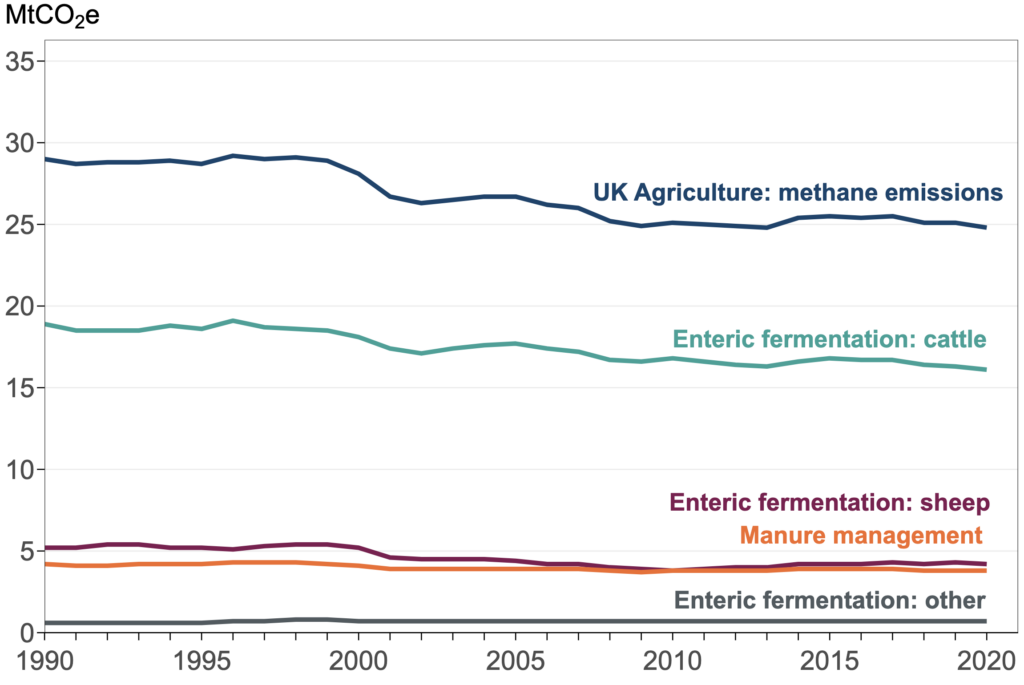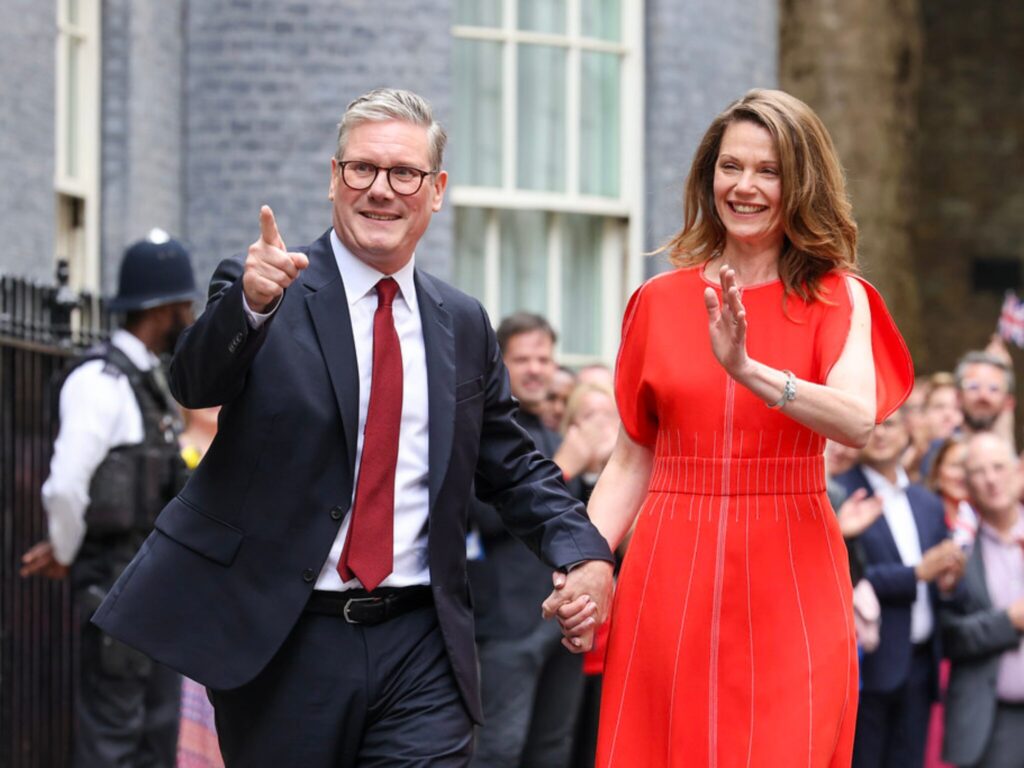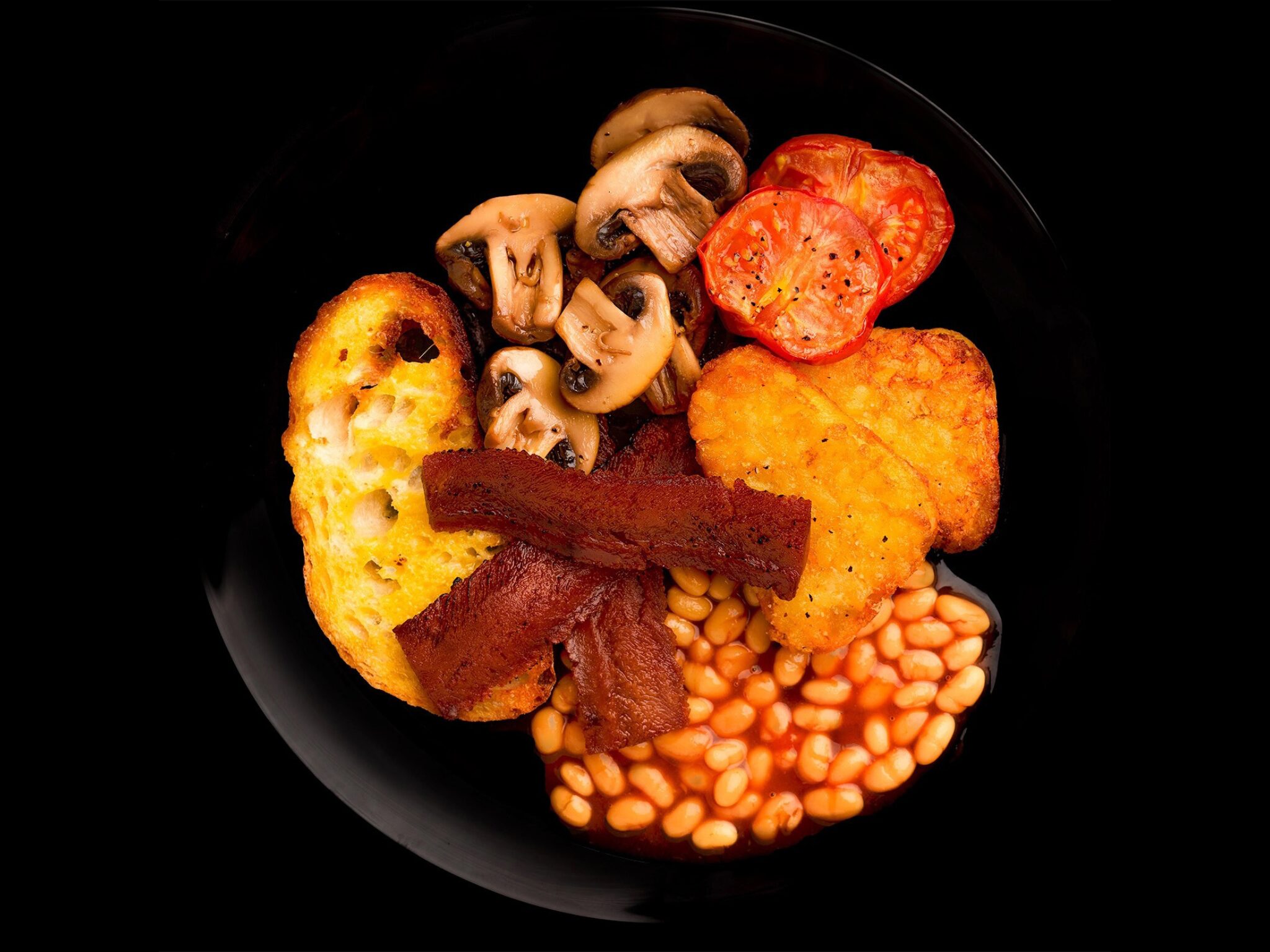UK Must Halve Meat & Dairy Consumption to Meet 2050 Net-Zero Target, Says Climate Change Committee
5 Mins Read
The UK’s Climate Change Committee is calling on the country to cut back on meat and dairy in an effort to meet its net-zero emissions goal.
Ahead of COP29, the UN’s annual climate summit, the UK’s energy secretary is facing calls to step up the country’s emissions reduction efforts and accelerate its path to net zero.
In a letter to Ed Miliband, the UK’s Climate Change Committee (CCC) said meat and dairy consumption should be slashed by up to 50% by 2050 to help meet its climate target, advocating for replacing these proteins with plant-based alternatives.
The recommendation is part of new net-zero actions proposed by the CCC, months before the UK publishes its Seventh Carbon Budget. The committee said that by 2025, the government should curb emissions by 81% (from a 1990 baseline), which would reduce emissions from the current 384 million tonnes to 200 million tonnes.
It comes after Miliband asked the CCC to set guidance on the UK’s nationally determined contribution (NDC) targets under the Paris Agreement, as part of the new Labour government’s climate plans.
The call to reduce the consumption of animal products in favour of low-carbon plant-based options, as reported by the Telegraph, would lead to a dramatic reduction in national emissions, allowing the UK to inch closer to the CCC’s recommended goal.
How the UK could embrace dietary shifts

The UK’s current Carbon Budget for 2035 had set a goal of cutting emissions by 78%, but the slight increase in the new recommendation reflects the escalating threat of the country’s production and consumption on the environment.
The CCC recently warned that the UK is not on track to meet its 2030 target (a 68% decrease in emissions) either, achieving only a third of the reductions required. “Setting a target is not enough. The UK must back up its international commitments through actions here at home,” the letter reads.
CCC chairman Piers Forster said encouraging dietary shifts among UK consumers would play a key role in achieving the 81% reduction by 2035, with one measure being to cut livestock numbers given their high methane output.
Forster did not specify other actions that could help Brits eat less meat. But the UK could benefit from a carbon tax on meat and dairy – as Denmark has introduced – to reflect the true planetary cost of animal proteins.
Another way to lower meat and dairy consumption is through regulating misleading adverts. The Agriculture and Horticulture Development Board (AHDB), which falls under the wing of the Department for Environment, Food and Rural Affairs (Defra), has been running a campaign to promote red meat and dairy, touting their supposed health and environmental credentials.
The AHDB suggested that “sustainability isn’t just about carbon”, and there are “many other things to consider”, citing data showing that transport and energy emissions are higher than livestock in the UK. But it failed to account for the livestock industry’s methane emissions, which make up nearly half (48%) of the country’s total, and have not been reduced since 2009.
Lowering the amount of methane, a gas 80 times more potent than carbon over a 20-year period, in the atmosphere is pivotal to averting global temperature rises, bolstering crop resilience, and boosting food security.
A group of British doctors have therefore called on the UK government to retract the AHDB’s campaign and stop promoting the “increased consumption of meat and dairy using misleading and un-evidenced marketing”.
Policy support for plant-based food crucial

Agriculture contributes to 10% of the UK’s total greenhouse gas emissions, but 62% of this comes from livestock farming. Meat and dairy production also uses up 85% of the UK’s farmland, despite only providing 32% of its calorie supply and 48% of its protein.
Meat and dairy analogues, meanwhile, have significantly smaller climate footprints. Last year, a landmark UK-specific study showed that vegan diets can reduce emissions, land use, and water consumption by 75% compared to diets rich in meat.
This is why activists have been urging Kier Starmer’s government to adopt policies to greenify the UK’s food system. The Plant-Based Food Alliance has called on lawmakers to develop a national action plan for vegan food, align the national Eatwell Guide with sustainability, reform public procurement to highlight climate-friendly food, and level the playing field for alternative protein companies (by removing restrictions on alt-dairy labelling and helping achieve price parity with animal proteins).
There is evidence that citizens would back such policies. Polling reveals that 63% of Brits would support policies that would help people eat healthier diets by reducing meat consumption and harmful emissions. This comes on the back of a year where the UK ate the lowest amount of meat and dairy in half a century.
Among the CCC’s other recommendations to deliver the NDC target are making low-carbon electricity cheaper, introducing plans to decarbonise public sector buildings, removing planning barriers for heat pumps, electric vehicle chargers, and onshore wind, and publishing a strategy to support skills in sectors that need to transition and communities that are adversely impacted by climate change.
“The Climate Change Committee has given ministers a useful benchmark for climate action but they may want to aim higher to show true global leadership and take full responsibility for the UK’s historic role as a major carbon polluter,” said Doug Parr, policy director at Greenpeace UK. “Actions speak louder than words, and true leadership means the government must also set out tangible plans to deliver on its 2035 target.”



